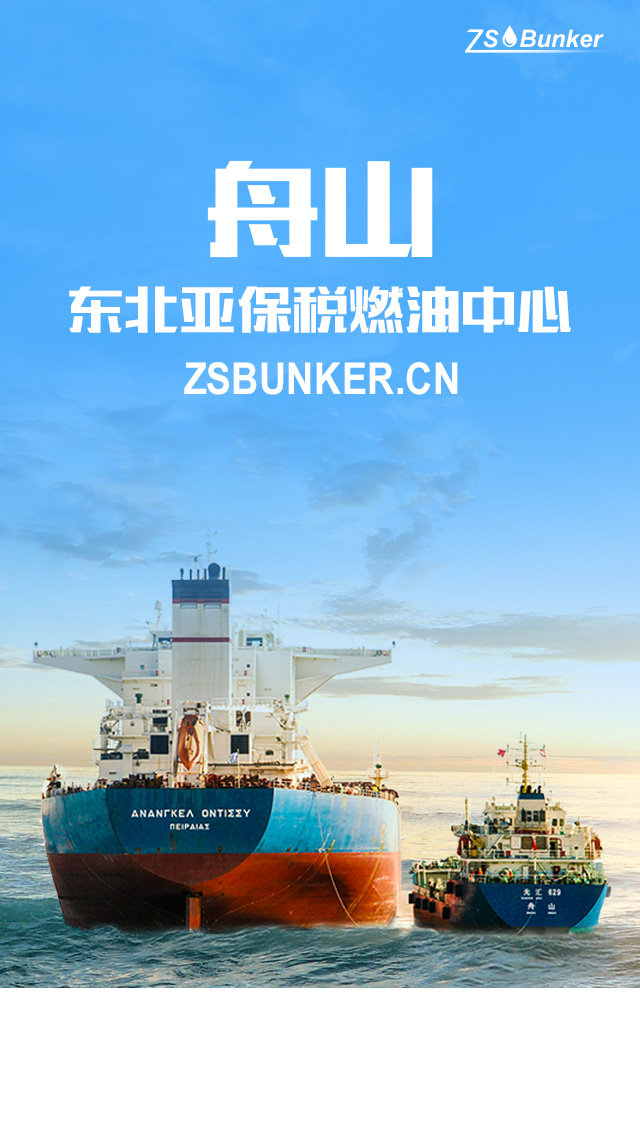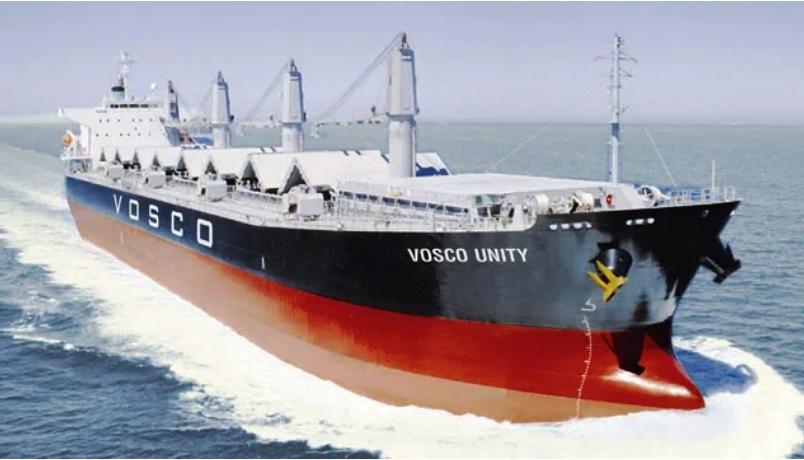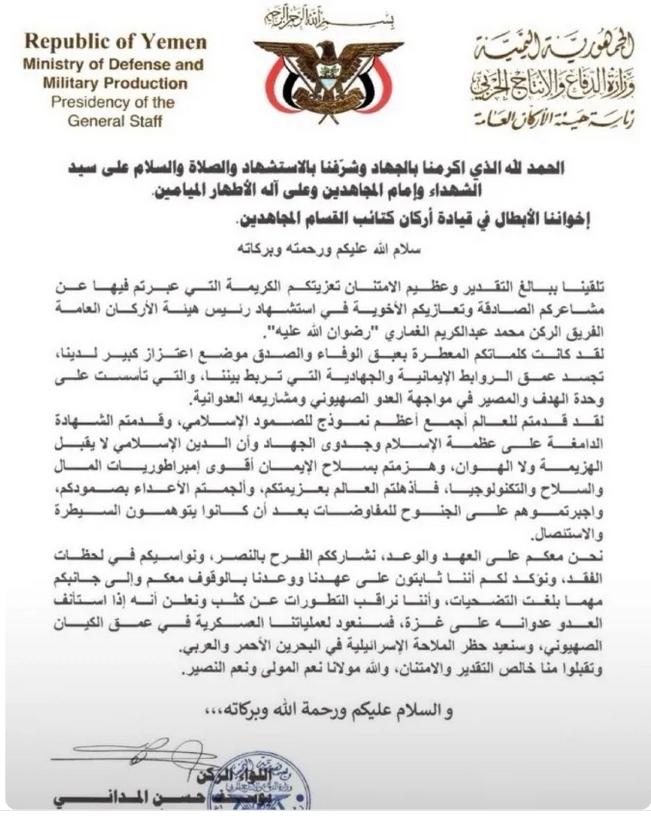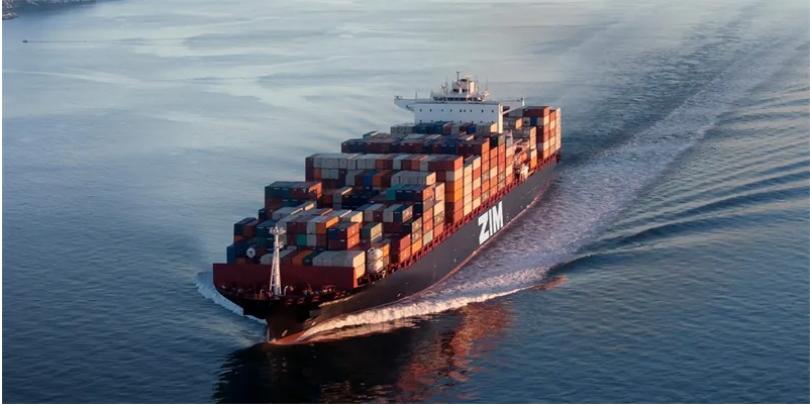【关键词】海盗、停租、索赔
参之前文章,说过如果合同中已经并入了BIMCO Piracy Clause 2013或Conwartime条款,船长有权利选择拒绝过Sulu海区域。面对越来越高的海盗风险,船长基于安全考虑,作出的绕航或者离开的决定,是否都情有可原,这和是否停租无关,只是基于人道主义。在安全问题面前,尤其是涉及到人命关天的海盗问题,出租人如果想不被停租,那么只能从条款上下功夫。
近期有一条L轮到西非某港口卸货,船长在抵达锚地递交NOR后,认为港口存在海盗风险,因此离开到港界外选择机动漂航。承租人于是主张停租,并声称要索赔额外的滞期费损失。那么在这种情况下,承租人主张是否有道理呢?本文从以下几个方面进行分析,接着来说说涉及海盗条款方面的问题。
首先,如果一个港口不是租约中允许的港口,即在租约中的除外区域,那么如果承租人安排去了这个港口,出租人完全有理由拒绝。如果承租人想去,那么出租人完全可以,先谈好一切对出租人自己有利的条件,然后才允许前往:包括但不限于要求承租人承担安全港口的绝对责任,并承担任何原因造成的任何出租人的损失。当然在本文要讲的这个争议中,不存在这个问题;承租人所安排的西非港口的在租约可允许的区域内。
L轮的租约中并入了Conwartime2004及BIMCOPiracy Clause 2013。接下来,来看具体分析。
一、BIMCO Piracy Clause 2009与BIMCO Piracy Clause 2013条款的区别
关于BIMCO的海盗条款,早先有2009年版本,后来在2013年进行了修改,有了新的版本。首先来看2009年版本,如下:
(a) The Vessel shall not beobliged to proceed or required to continue to or through, any port, place, areaor zone, or any waterway or canal (hereinafter “Area”) which, in the reasonablejudgement of the Master and/or the Owners, is dangerous to the Vessel, hercargo, crew or other persons on board the Vessel due to any actual, threatenedor reported acts of piracy and/or violent robbery and/or capture/seizure(hereinafter “Piracy”), whether such risk existed at the time of entering intothis charter party or occurred thereafter. Should the Vessel be within any suchplace as aforesaid which only becomes dangerous, or is likely to be or to become dangerous,after her entry into it, she shall be at liberty to leave it.
(g) If incompliance with this Clause anything is done or not done, such shall not bedeemed a deviation, but shall be considered as due fulfilment of this CharterParty. In the event of a conflict between the provisions of this Clause and anyimplied or express provision of the Charter Party, this Clause shall prevail tothe extent of such conflict, but no further.
关于这里的“is likely to be”的解释,在2012年The “Triton Lark”中,Teare法官对此作出了解释。该案涉及Conwartime2013的解释问题(may be, or are likely to be,exposed to War Risks),Teare法官对于过GOA发生的海盗劫持或风险,提出了a real likelihood的问题,即发生海盗真正的可能性问题。
商事法庭的法官认为,当事人的意图是该船舶将暴露于海盗行为中的“真正的可能性”(real likelihood)。形容词“真正的”反映了基于证据的可能性,而不是基于推测的幻想可能性。虽然“真正的可能性”包括一个比不发生的可能性更大的事件,它也可以包含一个发生的几率小的事件。一个纯粹的可能性不包括在内,因为短语“可能是”暗示的可能性程度大于一个缺乏的可能性。“真正的可能性”所固有的概率是或可以反映在诸如“真正的危险”或“严重的可能性”等短语中。法官认为,“真实的可能性”应该理解为真正的危险的意义上。
It seems to me that thearbitrators understood "a serious risk" to be a risk of an importantevent, demanding of consideration. However, on my construction of the phrase"may be, or are likely to be", that phrase connoted a serious risk inthe sense of one of which it could be said that there was a real likelihood orreal danger that the vessel would be exposed to acts of piracy. There is adifference between the two which is neatly summed up by Mr. Nolan's contrastbetween a serious risk that an event will occur, in this case being exposed toacts of piracy, and a risk that a serious event, being exposed to acts ofpiracy, will occur.
而对serious risk的问题上,法官认为应该被理解为一个事件的发生有严重的风险(事件是指暴露在海盗行为中):
a serious risk that an event will occur(in this case being exposed to acts of piracy) or;
法官认为,如果他得出结论是,仲裁员对“可能,或可能会,暴露在战争风险中”的理解在法律上错误的,那么他必须遵循仲裁员的结论,二船东的合理判断在法律上也是错误的。
租家律师Nolan还有另外一点,他认为,法庭应该自问,船东是否合理地得出结论,那里确实有很严重的风险,他们的船将暴露在海盗行为中,而不是问船舶很可能被劫持的判断是是否是合理的。
船东律师Kenney认为,依第78和第96段,显而易见,仲裁员认为船东在事实上作出了合理判断。
法官认为,对仲裁员所列的理由的公正看法是,仲裁员认为船东在事实上做出了判断。他们说,该判断“是善意的行使”(见第97段的理由),所以他们必须得出结论,实际上做出了判断。虽然他们说,二船东所掌握的资料足以使他能得出结论,认为有严重的劫持风险(见第97段的理由)。法官也认为仲裁员他们依第96段的理由而做出确实有很大的劫持风险的裁决,而第97段是在解释为什么仲裁员作这个裁决是合理客观的。
因此,除了运用法律错误之外,法官不认为仲裁员还有任何别的错误。
If, as I have concluded was thecase, the arbitrators were wrong in law as to their understanding of the phrase"may be, or are likely to be, exposed to War Risks" then it mustfollow that their conclusion that Bulkhandling formed a reasonable judgmentmust also be wrong in law.
Mr. Nolan had a further point.He submitted that the tribunal asked themselves whether the Owners could have reasonably concludedthat there was a serious risk that the vessel would be exposed to acts ofpiracy instead of asking themselves whether the Owners' judgment that it waslikely that the vessel would be hijacked was reasonable.
Mr. Kenny said that it was apparent fromparagraphs 78 and 96 of the Reasons that the arbitrators held that the Ownersdid in fact make a reasonable judgment.
I consider that the fairreading of the arbitrators' Reasons is that the arbitrators concluded that theOwners did in fact make a judgment. They said the judgment "was exercisedin good faith" (see paragraph 97 of the Reasons) so that they must haveconcluded that there had in fact been a judgment. Whilst they said that theinformation in Mr. Mikkelsen's possession was "sufficient to enable him…to conclude that there was a serious risk of hijacking" (see paragraph 97of the Reasons) I also consider that they found that he did in fact concludethat there was a serious risk of hijacking because they refer to such aconclusion in paragraph 96 of the Reasons. The following paragraph 97 explainswhy they considered that such judgment was objectively reasonable.
I therefore do not considerthat there is any further error beyond the application of the wrong legal test.
最终该案上诉到高等法院。高等法院的Teare法官又继续解释了exposed to War Risks及maybe, orare likely to be,a real likelihood的具体含义。认为exposed toWar Risks应该理解为exposure to acts of piracy means that the vessel is subject to therisk of piracy or is laid open to the danger of piracy,而risks则对应为danger。
Teare法官最终要求把案件发还给仲裁员重新裁定。在法官的判决及考虑到当事人提出的证据,是否,二船东作出了合理的判断,那里有真正的可能性,在亚丁湾船舶将暴露于海盗的危险之中。换句话简单点说,在二船东合理的判断下,在亚丁湾那里是有真正的可能性,由于海盗行为对于Triton Lark轮是危险的。
I shall order that the award beremitted to the arbitrators to reconsider, in the light of my judgment and havingregard to the evidence adduced by the parties, whether, in the reasonable judgment of Bulkhandling, there was areal likelihood that the vessel would be exposed to acts of piracy in the Gulfof Aden. In shorthand the question is whether, in thereasonable judgment of Bulkhandling, there was a real likelihood that the Gulf of Aden would, on account of acts of piracy, bedangerous to Triton Lark.
为了消除潜在的不确定问题,BIMCO对此作了修改,随后有了2013年的版本。
BIMCO Piracy Clause for Time Charter Parties 2013
(a) The Vessel shall not be obliged to proceed orrequired to continue to or through, any port, place, area or zone, or anywaterway or canal (hereinafter "Area") which, in the reasonablejudgement of the Master and/or the Owners, is dangerous to the Vessel, cargo,crew or other persons on board the Vessel due to any actual, threatened orreported acts of piracy and/or violent robbery and/or capture/seizure (hereinafter"Piracy"), whether such risk existed at the time of entering intothis Charter Party or occurred thereafter. Should the Vessel be within any suchplace as aforesaid which only becomes dangerous, or may become dangerous, after entry into it,the Vessel shall be at liberty to leave it.
(b) If in accordance with sub-clause (a) the Owners decidethat the Vessel shall not proceed or continue to or through the Area they mustimmediately inform the Charterers. The Charterers shall be obliged to issuealternative voyage orders and shall indemnify the Owners for any claims fromholders of the Bills of Lading or third parties caused by waiting for suchorders and/or the performance of an alternative voyage. Any time lost as aresult of complying with such orders shall not be considered off-hire.
(c) If the Owners consent or if the Vessel proceeds toor through an Area exposed to the risk of Piracy the Owners shall have theliberty:
(i) to take reasonable preventative measures toprotect the Vessel, crew and cargo including but not limited to re-routeingwithin the Area, proceeding in convoy, using escorts, avoiding day or nightnavigation, adjusting speed or course, or engaging security personnel and/ordeploying equipment on or about the Vessel (including embarkation/disembarkation).
(ii) to comply with the requirements of the Owners'insurers under the terms of the Vessel's insurance(s);
(iii) to comply with all orders, directions,recommendations or advice given by the Government of the Nation under whoseflag the Vessel sails, or other Government to whose laws the Owners aresubject, or any other Government, body or group (including militaryauthorities) whatsoever acting with the power to compel compliance with theirorders or directions; and
(iv) to comply with the terms of any resolution of theSecurity Council of the United Nations, the effective orders of any otherSupranational body which has the right to issue and give the same, and withnational laws aimed at enforcing the same to which the Owners are subject, andto obey the orders and directions of those who are charged with theirenforcement; and the Charterers shall indemnify the Owners for any claims fromholders of Bills of Lading or third parties caused by the Vessel proceeding asaforesaid, save to the extent that such claims are covered by additionalinsurance as provided in sub-clause (d)(iii).
(d) Costs
(i) If the Vessel proceeds to or through an Area wheredue to risk of Piracy additional costs will be incurred including but notlimited to additional personnel and preventative measures to avoid Piracy, suchreasonable costs shall be for the Charterers' account. Any time lost waitingfor convoys, following recommended routeing, timing, or reducing speed ortaking measures to minimise risk, shall be for the Charterers' account and theVessel shall
remain on hire;
(ii) If the Owners become liable under the terms ofemployment to pay to the crew any bonus or additional wages in respect ofsailing into an area which is dangerous in the manner defined by the saidterms, then the actual bonus or additional wages paid shall be reimbursed tothe Owners by the Charterers;
(iii) If the Vessel proceeds to or through an Areaexposed to the risk of Piracy, the Charterers shall reimburse to the Owners anyadditional premiums required by the Owners' insurers and the costs of anyadditional insurances that the Owners reasonably require in connection withPiracy risks which may include but not be limited to War Loss of Hire and/ormaritime K&R.
(iv) All payments arising under Sub-clause (d) shallbe settled within fifteen (15) days of receipt of Owners’ supported invoices oron redelivery, whichever occurs first.
(e) If the Vessel is attacked by pirates any time lostshall be for the account of the Charterers and the Vessel shall remain on hire.
(f) If the Vessel is seized by pirates the Owners shallkeep the Charterers closely informed of the efforts made to have the Vesselreleased. The Vessel shall remain on hire throughout the seizure and theCharterers' obligations shall remain unaffected, except that hire paymentsshall cease as of the ninety-first (91st) day after the seizure until release.The Charterers shall pay hire, or if the Vessel has been redelivered, theequivalent of Charter Party hire, for any time lost in making good any damageand deterioration resulting from the seizure. The Charterers shall not beliable for late redelivery under this Charter Party resulting from the seizure ofthe Vessel.
(g) If in compliance with this Clause anything is doneor not done, such shall not be deemed a deviation, but shall be considered asdue fulfilment of this Charter Party. In the event of a conflict between theprovisions of this Clause and any implied or express provision of the CharterParty, this Clause shall prevail.
该海盗条款(a)款和Conwartime的(b)款差不多。船舶无义务进入或继续进入或通过,在船长和/或出租人合理判断的情况下,对于船舶、货物、船员或其他在船人员有实际或可能危险,或有报告的海盗活动和/或暴力抢夺和/或俘获/捕获(以下简称“海盗”)的任何港口、地点、区域或地区或任何航道或海峡(以下简称 “区域”),无论此风险是否在订立本租约期间存在或是租约订立以后。当船舶进入前述地点变为危险或可能危险、或进入后危险,船舶可自由离开。
对于(a)款最重要的修改是,由2009年的“or is likely to be or to become dangerous”修改为了2013年的“or may become dangerous”。把is likely to 删了,及 to become dangerous修改为 may become dangerous。意图明显,无需发生很大的可能性,仅仅需要可能发生危险,对可能性高低,风险程度不再作要求。
最后(g)款,还说:“inthe event of a conflict between the provioins of this clause and any implied orexpress provision of the charter party, this clause shall prevail.”
如果按本条款为或不为,不视为绕航,应被视为对本租约的适当履行。本租约条款与租约中其他默示或明示条文冲突时,本条款优先适用。
该条款有说,如果在进入该区域后,只有在该区域变得危险,或可能变得危险的情况下,才有权利选择离开。这里并入的是BIMCO Piracy Clause 2013版本,已经把发生海盗风险的可能性要求删掉了,对等级不再作要求。因此从条款上解释,对出租人有利。
二、CONWARTIME条款的解释
在Geden Operations Ltd v Dry Bulk Handy Holdings Inc M/V"Bulk Uruguay" [2014] EWHC 885 (Comm) (28 March 2014)案中,合同并入的是CONWARTIME2004条款。在2011年7月8日,租家通过经纪发邮件给船东,说第一个处女航次,租家有意向安排船舶通过亚丁湾(Gulf of Aden)将船摆位到大西洋,询问船东额外的保费。
船东随后找原船东寻求处女航过亚丁湾许可。在7月11日原船东回复邮件拒绝过亚丁湾。但在7月15日原船东发邮件说改变主意,同意过亚丁湾,但同时声明只是针对第一个航次,今后别的航次将不允许再过亚丁湾。
租家说按租约过亚丁湾无需取得船东同意;船东解释说虽然合同删除那些条款,但他们在过亚丁湾之前,仍得取得原船东同意许可。租家在7月23日发邮件给船东说,由于船东极力主张在过亚丁湾之前需取得船东事先同意,已经构成了毁约,租家意图接受船东违约并终止租约。船东在7月25日发邮件声称,接受租家毁约终止合同。随后船东找租家索赔650万美金因租家毁约带来的损失;租家抗辩说是船东说不同意过亚丁湾,给租家经营方面带来了很大影响,剥夺了租家可以赚取的利益,船东构成毁约在先,于是选择终止合同。
争议的两个问题主要为(a)船东的行为是否构成了预期毁约,(b)如果是,那么是否剥夺了租家可能的收益?
法官Popplewell在经过分析后认为,认为多数仲裁员在法律上并没有引援错误,船东的行为并不存在预期毁约。相反,租家选择终止合同构成了违约。
The relationship between the two types ofanticipatory breach was discussed by Devlin J in Universal Carriers vCitati [1957] 2 QB 401 at 436-438:
"The law on the right to rescind issuccinctly stated by Lord Porter in Heyman v. DarwinsLtd. as follows: "The three sets of circumstances giving rise to adischarge of contract are tabulated by Anson as: (1) renunciation by a party ofhis liabilities under it; (2) impossibility created by his own act; and (3)total or partial failure of performance.
There was no error of law. The majorityaddressed the correct question and reached a conclusion of fact which was opento them and which is not susceptible of review on this appeal. The minorityarbitrator concluded that the Owners made clear that they would not be able tocomply with orders to transit GOA promptly.That was an alternative conclusion which may have been available on the facts,but it was not the view of the majority.
在Taokas Navigation SA v Komrowski Bulk Shipping KG(GmbH & Co) & OrsThe “Paiwan Wisdom” [2012] EWHC1888 (Comm) (11 July 2012)案中,原船东把船PAIWAN WISDOM租给Kent Line International Ltd(以下简称“二船东”),二船东在2010年3月25日的时候,以NPYE93的租约格式租给了Solym Carriers Ltd(以下简称“租家”),租期约11-13个月。
在2010年4月22日于日本的Hakodate交船给租家,租家在4月24日给船上发航次指示,要求前往台湾的Hoping装水泥熔渣,到肯尼亚的Mombasa卸。但是原船东依赖CONWARTIME2004条款,拒绝执行该航次任务。租家没有办法,寻找替代船,损失了85万美金,找船东索赔。
在该案中,争议的主要焦点是:依照Paiwan Wisdom轮租约的真实意图,二船东是否不允许依赖CONWARTIME2004条款,而拒绝去执行租家的航次任务?
仲裁员对此作出了裁决,答案是否;也就是说船东有权利不去肯尼亚。
The arbitrators, by a majority, determinedthat the answer to that question was No.
租家请求上诉,但是高等法院的Teare法官不接受租家律师抗辩。
I am unable to accept Mr. Jarvis'submissions as to the effect of clause 50.
Teare法官认为对于肯尼亚在IWL区域内没有怀疑,但是按照第94条,CONWARTIME2004,船东有权利拒绝前往有战争风险的危险区域。而CONWARTIME2004并没有额外要求在租约恰定之后,相关的战争风险需逐步升级。
There is no doubt that
第50条规定在H&M保险人同意下允许过亚丁湾暗示了船东同意船舶过亚丁湾。按照CONWARTIME2004,那么就算有海盗袭击的危险,船东也不允许拒绝过亚丁湾。合同第50条已经列明了船东同意过亚丁湾。
The words"Passing Gulf of Aden always allowed with H&M insuranceauthorisation" in clause 50 indicate the Owners' agreement to pass throughthe Gulf of Aden. The Owners would therefore not be entitled to refuse,pursuant to CONWARTIME 2004, to pass through the Gulf of Aden on account of there being a danger of an attack by pirates.That is because CONWARTIME 2004 must be read in the light of the charterpartyas a whole. Clause 50 contains an express agreement to pass through the Gulf ofAden and so it would be inconsistent with that express agreement to construeCONWARTIME 2004 in sucha way as to permit the Owners to refuse to pass through the Gulf of Aden.
亚丁湾当前的海军力量及编队系统解释了船东为什么会同意过亚丁湾,但是这并不能理解为船东同意船舶到非洲东部沿岸的任何港口或地区。租家可以要求直接到Mombasa,但是如果途中有发生海盗行为真正的可能性,那么船东依据CONWARTIME2004,有权拒绝前往。
The presence in the Gulf of Aden of navalforces and a convoy system explains why the Owners agreed to pass through the Gulf of Aden. That agreement is no warrant for construingclause 50 as an agreement by the Owners that the vessel shall proceed to anyport or place on the east coast of Africa (other than the excluded countries ofEritrea, Ethiopia and Somalia) where there is a risk of piracy but no navalforces or convoy system. The Charterers may direct that the vessel proceeds toMombasa but the Owners have liberty to refuse to proceed through the IndianOcean to Mombasa if, within the meaning of CONWARTIME 2004, there is a reallikelihood of the vessel being exposed to acts of piracy on such route.CONWARTIME 2004 contains no requirement that any such likelihood should havematerially increased from the date of the charterparty.
租约有对于与战争险保费的规定,但并没有针对列明港口的规定。租约也没有说船东接受到Mombasa的海盗风险;同时商业方面的考虑和本案并没有冲突。
There areprovisions in the charterparty for the payment of war risk insurance by theCharterers (see clause (d)(ii) of clause 50) but none which provides for thecost of war risk insurance for going to a named place.
Thus the present case is notone in which the Owners have, by the terms of the charterparty construed in itsfactual context, accepted the risk of piracy in trading to Mombasa, Kenya.
So far as "commercialsense" is concerned I do not accept that there is a lack of commercialsense in a construction of the charterparty which permits trading to
Nor am I persuaded that Mr.Jarvis' example of a voyage from the Black Sea to
最终法官Teare认同仲裁员的裁决,驳回租家上诉。
For these reasonsI consider, as did the majority of the arbitrators, Mr. Siberry QC and Mr.Martin-Clark, that the answer to the Preliminary Issue is No. The appeal mustbe dismissed.
The “Paiwan Wisdom”案发生在The “Triton Lark”案之后,而且同为高等法院Teare法官作出的判决,所以应该遵循The “Paiwan Wisdom”案的解释。回到L轮的情况就是,因为ABIDJAN位于几内亚湾附近,存在海盗风险,出租人有权选择不去该地区的港口。
三、BIMCO Piracy Clause 2013 条款的具体解释
该(a)款描述如下:
(a) The Vessel shall not be obliged to proceed orrequired to continue to or through, any port, place, area or zone, or anywaterway or canal (hereinafter "Area") which, in the reasonablejudgement of the Master and/or the Owners, is dangerous to the Vessel, cargo,crew or other persons on board the Vessel due to any actual, threatened or reported acts of piracy and/or violent robbery and/or capture/seizure(hereinafter "Piracy"), whether such risk existed at the time ofentering into this Charter Party or occurred thereafter. Should the Vessel bewithin any such place as a foresaid which only becomes dangerous, or may become dangerous,after entry into it, the Vessel shall be at liberty to leave it.
其中措辞有any,threatened, reported,act of piracy, violent
Robberty等等组成了一系列并列,单独的事项。而关于这个reported,并没有说是哪个国家或者哪个机构的报告。那么参IMB Piracy Reporting Centre一家马来西亚的政府网站中的报告如下:
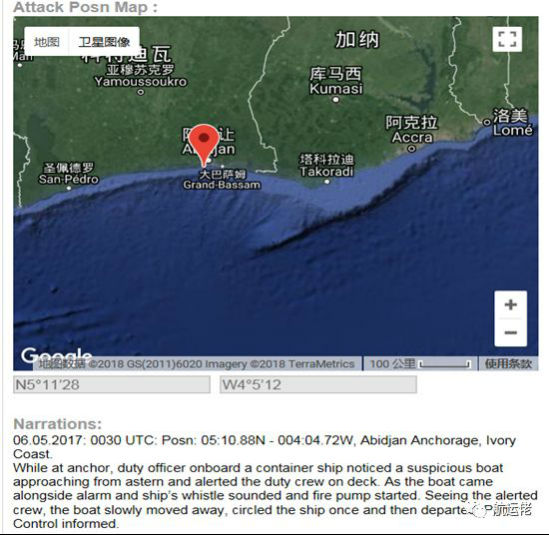

Armed attacks on ships in West African waters rise:report Joe Bavier3 Min Read
ABIDJAN(Reuters) - Armed attacks on ships in West African waters nearly doubled in2016, with pirates increasingly focused on kidnapping their crew for ransom off
A recent spate of attacks off
Sponsored OBP, a project of the privately funded OneEarth Future Foundation that encourages cooperation across the internationalmaritime community to tackle piracy, recorded 95 attacks in West Africa’s Gulf of Guineain 2016, up from 54 the previous year.
Cargo theft,once the main focus of piracy in the region, has given way to an increase inkidnappings, with 96 crew members taken hostage compared to 44 in 2015.
从这些报告可以看出,2016年在西非的几内亚湾发生了95起袭击事件,高于2015年的54起。一度成为该地区海盗活动主要焦点的货物盗窃已经让绑架事件增加,96名船员被劫为人质,2015年为44人。因此ABIDJAN确实面临了海盗风险。
那么依据这些报道,船长也有权利在进入之后选择离开港口到港外漂航。
四、合约的解释
对于合约的解释问题,所先需要再次明确的是,法院的任务是确定当事人双方选择用来表达其协议的措辞的客观含义。法院必须考虑所使用的措辞,并确定合理的人,即具有在合同签订时已合理地向当事方提供的所有背景知识的人理解的内容。法院必须将整个合同视为一个整体,并根据合同起草的性质,形式和质量,或多或少地重视更广泛的内容,以达到其所用措辞的客观含义。如果有两种可能的解释,法院有权选择符合商业合理性的解释。为了在语言表达和相互竞争解释的含义之间取得平衡,法院必须考虑起草该条款的质量;同样,法院也不能忽视这样一种可能性,即一项条款可能是谈判妥协,或者谈判者无法就更准确的条款达成一致。只要法院平衡各自给出的指示,更详细的分析是否与事实背景以及竞争对手的解释的影响或合同中相关措辞的深入研究无关。
合约的解释必须将合同当着一个整体来考虑,如果措辞足够清晰明确,那么纵然结果是荒谬的,当事人也不得不接受。没有任何解释原则可以使法院有权重写合同条款,如果仅仅是因为当事方所需要的因素似乎并没有按照当事人预期的方式发展。
这些解释的原则,可以参Investors Compensation Scheme Ltd v West Bromwich Building Society [1998] 1 WLR 896; Chartbrook Ltd v Persimmon Homes Ltd [2009] 1 AC 1101; Re Sigma Finance Corp [2010] 1 All ER 571; Rainy Sky SA v Kookmin Bank [2011] 1 WLR 2900; Arnold v Britton [2015] AC 1619; and Wood v Capita Insurance Services Ltd [2017] AC 1173.这些权威判例。
鉴于合同中已经并入了BIMCOPiracy Clause 2013条款,该条款措辞足够清晰明确,赋予了船长选择离开港口的权利。租家不能事后反悔,不能认为没有按照他们的预期方式发展而无视条款的明确规定。如Sumption勋爵所说,商业合同最没公平性。如果租家认为ABIDJAN发生海盗的可能性不大,或者需要很大的可能性船长才有权利选择离开,那么他们应该坚持并入合同的是2009年版本,而不是2013年的版本。
五、停租问题
关于停租的相关问题,首先必须是发生了停租条款中列明的可停租的事项,该事项阻碍了船舶完全运作,无法提供承租人所需要的服务。对于这个所需要的服务,Staughton勋爵在The “BergeSund”[1993] 2 Lloyd’s Rep.453案中第460页判决中说到:问题不在于承租人希望或预期他们的要求是什么,而是他们实际需要什么服务。
The arbitrators' testwas thus one of hope or expectation. But even if that was to be an objectivetest, I cannot believe that it was right. It is, as Aristotle said, probablethat many improbable things will happen. The question is not what the charterers hoped or expectedtheir orders would be, but what service they actually required.
如果租约是time lost的话,承租人还必须举证有实际的时间损失,才可以停租;如果无法证明有损失,则无权停租。
L轮,从代理提供的LINE-UP看,该轮还在排队等泊中,因此租家所需要该轮提供的立即的服务是,在等泊;而船舶提供等泊的服务完全没有问题,租家因此无权停租。
但可能存在一个问题,即如果租家已经发了明确的指示,要求船舶回到锚地排队等泊,则有可能出现和2013年The“Athena”案中类似的问题。在该案中,承租人在1月19日的时候,发电邮给船长,告之船长不得靠泊卸货及放货除非有他们的书面指示;可以同意收货人取样,抵达之后在Benghazi锚地抛锚等候进一步指示。
在19日2338的时候,船长听从出租人的指示,在利比亚外的公海停车漂航。在第二天,承租人发电邮给船长,声称船舶没有遵从他们前往Benghazi锚地的指示,因此从那时候其直到该轮离开漂航位置前往Benghazi的期间停租。该轮与承租人的指示相反,继续在公海水域漂航,直到1月30日的2214才继续航行前往Benghazi卸港,总共延误了10.9416天。
出租人认为在公海漂航并没有给承租人造成实际的时间损失,因为就算是前往Benghazi港锚地抛锚也不能理解靠泊卸货。但承租人主张,船长并没有提供承租人所需要的服务,船舶的运作受到阻碍;其次依据合同条款,船长未遵从承租人指示,承租人也可以索赔损害赔偿。
但是上诉院的Tomlinson勋爵在经过对众多判例的分析后认为,如果航程中包括装货和卸货,那么是该想法是任意的和违反直觉的。船长拒绝听从承租人的指示,到Benghazi抛锚等候指示,虽然船舶如果直接到锚地等泊也可能会会造成时间损失,但这直接导致了船舶成为到达船与否的问题,推迟了承租人可能将卸货延误的风险转移到他的转租程租人身上。承租人在此时所需要的服务是继续航行,与在锚地后承租人所需要的立即的服务靠泊和卸货并不相关。最终判船长选择漂航的行为直接导致了船舶完全运作受到阻碍,未能立即提供承租人所需要的服务,承租人有权停租。
和L轮情况类似,如果租家已经明确指示要求船长回到锚地,那么如果船长未听从的话,将直接导致未能提供租家立刻所需要的服务(回到锚地),那么船舶完全运作受到阻碍,租家有权停租。
但是合约的解释应该把整个合同当为一个整体。合同中已经明确并入了BIMCO Piracy Clause 2013,而且该条款还明确规定了:任何与合同条款有冲突的话,BIMCO Piracy Clause 2013条款优先,。那么回到前面的分析,船长有权利选择离开到外面漂航,因此租家无权停租。船长的为或不为,不视为绕航,应被视为对本租约的适当履行。
而租家关于额外的索赔完全不成立,不必作任何分析。如果有疑问,可去参之前关于索赔的遥远性问题的相关文章。
六、船员的意愿问题
如前文提到的,涉及到海盗安全的问题,笔者认为,船长所做的基于安全考
虑的任何决定,都是可理解的。一条船好几十号人,涉及到好几十个家庭的幸福,船长有绝对的责任、义务及权利保障自己弟兄的安全。出租人如果不想被停租,那么只能在租约中订好条款保障出租人利益。
L轮的承租人曾发电邮声称,出租人/船长拒绝遵从承租人合法的指示,意味着承租人不能收到约4个星期等待期间的滞期费。
In fact, owners/master’s refusal to followcharterers’ legitimate orders means that Norden shall not be able to collectdemurrage for about four weeks of waiting time…
笔者想强调的是,出租人从未拒绝出租人的指示,但出租人不能强迫船长去遵从承租人的指示,因为这是船长基于安全考虑的绝对的权利,这只是船方自己的意愿。而船员的意愿问题,不属于停租条款中的deficiency of men.
对于停租条款中的deficiency of men的解释,Sellers法官在Royal Greek Government v.Minister of Transport案中说到,高级船员因疾病或伤害而不能工作,等同于“deficiency of men”,如果船舶的工作受到妨碍或阻碍,则适用该条款;如果丧失工作能力的船员在船上或在岸上医院这两者并没有什么区别。在完全有能力存在的情况下,身体无法工作的质量和性格不同于拒绝工作。在我看来,暂停支付租金条款中的“deficiency of men”条款是为了在船上没有足够的高级船员和工作人员的情况下停租船舶。船上配备了完整的船员并且能够工作,但暂时因没有护航编队而不愿意开航。根据这些事实,博学的仲裁员认定在任何实质性时间都没有“deficiency of men”。 Sellers法官认为仲裁员的裁决在法律上是正确的。
The inability of officers and men to workthrough sickness or injury would, in my view, amount to "deficiency ofmen" and the clause would apply if the working of the vessel was hinderedor prevented thereby, and it would make no difference if the incapacitatedmembers of the crew were on the ship or in hospital on shore. Physicalinability to work is different in quality and character from refusal to workwhen full capacity to do so exists. In my opinion, the provision"deficiency of men" in the suspension of hire clause is directed toputting the vessel off hire when an adequate complement of officers and crewfor working the ship is not available. Here there was no failure in thecomplement. The complete crew was present in the ship able to work, but, forthe time being, unwilling to take the ship to sea, except in convoy. On thesefacts the learned arbitrator has found that there was not at any material timea "deficiency of men." I am of opinion that his decision was right inlaw.
在该案中,上诉院的Bucknill勋爵在200页判决中说到,我认为第11(A)条中的“男士”一词必须理解为“高级船员和船员”。 如果我们看一下第34条,它会这样说:“对第11(A)条的补充条款尽管有第11(A)条的规定,但同意如果由于无法获得或完成一个船员而导致时间损失 (a)全额支付租金等等。我认为这两个条款是非常公正的解释,“Deficiency ofmen”与事物状态是一回事,仅仅是由于无能力获得或完成一个船员。换句话说,它涉及的是数量而不是意愿。
I think the word "men" in Clause11 (A) must be read as meaning "officers and crew." If one looks atClause 34 it says this: "Addendum to Clause 11 (A). Notwithstanding theprovisions of Clause 11 (A) it is agreed that in the event of loss of time duesolely to inability to get or to complete a crew (a) full hire will bepaid," etc., etc. I think it is a very fair reading of those two clausesto say that the "deficiency of men" is the same thing as a state ofthings "due solely to inability to get or to complete a crew." In other words, it is dealingwith numbers and not with willingness.
Bucknill勋爵在第200页判决书中继续说到,可能会这样说,如果船长,高级船员或者轮机员的行为导致船舶延误或无法使用,船舶被停租,但事实并非如此。
It does not say that if the conduct of the master,officers, or engineers causes delay or disuse of the ship the ship is to comeoff hire. It might have said so, but it does not.
这是否被视为“人员不足”的情况?船员已经在那里,只是他们不愿意工作而导致延误或损失。Bucknill勋爵认为人们必须公平地看待这些文字,而不是将它们延伸到它们的意义之外。
唯一的另外一个问题是,这是否属于第11(A)条下的事故,其内容是:“如果进坞修理或其他必要物料能够维持船舶的效率,机器损坏,船体损坏或其他事故”。博学的法官以这种方式处理了这个问题:
高级船员和船员故意拒绝航行,除非加入编队,似乎没有任何“事故”因素。这不是一个意外事件,它绝不像任何其他列举的事件,这些事件都会导致船舶停租。
Bucknill勋爵他完全同意这一点,并认为不需要添加任何东西。
出于这些原因,承租人的上诉被驳回。
Is that to be taken as a caseof "deficiency of men"? The crew are there already; it is just theirunwillingness to work which causes the delay or loss. I think one must readthese words fairly and not stretch them beyond their plain meaning.
The only other question iswhether this is an accident under Clause 11 (A), the words of which are,"In the event of drydocking or other necessary measures to maintain theefficiency of the vessel, deficiency of men or owners' stores, breakdown ofmachinery, damage to hull or other accident." The learned Judge dealt withthat in this way (sup., at p. 359):
The wilful refusal of theofficers and crew to sail except in convoy does not appear to me to have anyelement of "accident." It is not an accident and it in no wayresembles any of the other enumerated events which would serve to put thevessel off hire.
I agree with that so completelythat I do not think there is anything I need add.
For these reasons, in myopinion, this appeal should be dismissed.
同理,L轮,因为船长和船员们自己的意愿问题,选择到港外漂航等泊,并不能认为是deficiency of men;因此承租人无权停租。
此外,如果承租人还想主张有滞期费索赔,那么承租人得去举证,确实有损失,导致NOR无效。但如之前有提到过,鉴于有海盗风险,法官判船长有权利在离港口50海里的地方递交NOR,并且该NOR有效。船长递交NOR的位置在港界外,甚至不属于港口所在国家的海内。
基于以上解释,笔者认为,船长选择离开港口到港界外机动漂航,纯属从安全考虑船员自己的意愿,承租人无权停租。同时,出租人有相关条款的保护(Conwartime2004及BIMCO Piracy Clause 2013),船长的为或不为,均不得视为然后,而应视为对本租约的适当履行。
(近期各地海盗风险加剧,贴此文供参考。)
海运圈聚焦专栏作者 Alex (微信公众号 航运佬)

 2018-10-02
2018-10-02 1533
1533 





